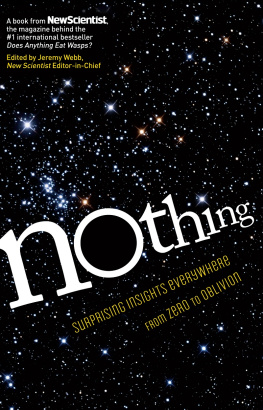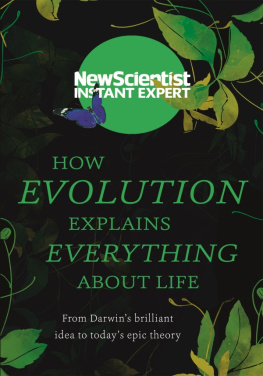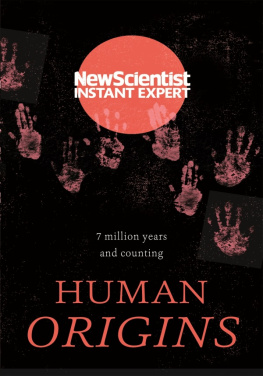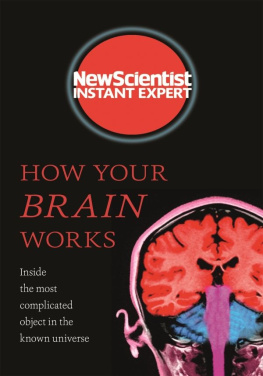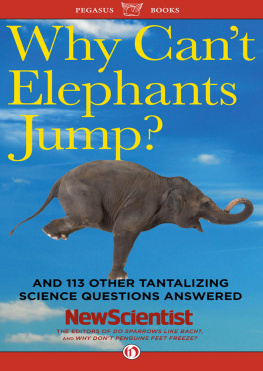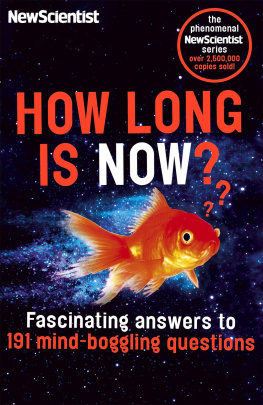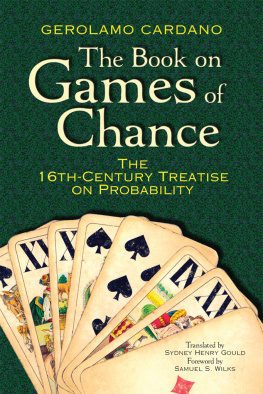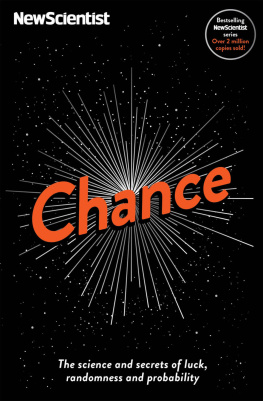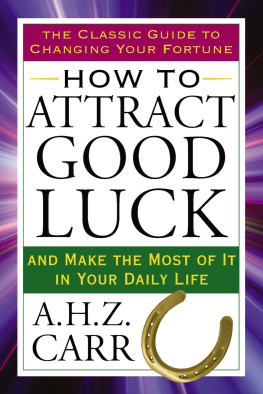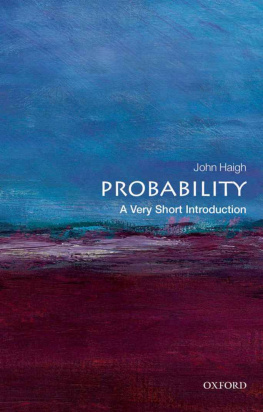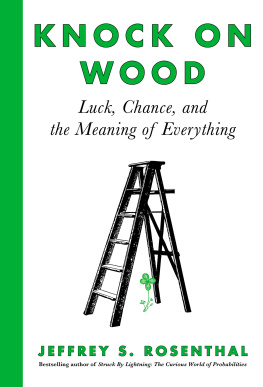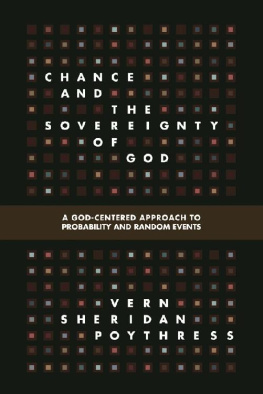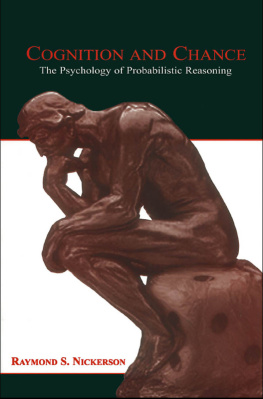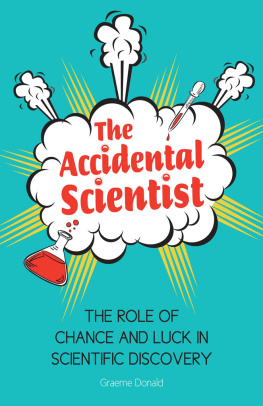chance
The science and secrets of luck, randomness and probability

chance
The science and secrets of luck, randomness and probability
edited by Michael Brooks

First published in Great Britain in 2015 by
Profile Books Ltd
3 Holford Yard
Bevin Way
London WC1X 9HD
www.profilebooks.com
Copyright New Scientist 2015
The moral right of the authors has been asserted.
All rights reserved. Without limiting the rights under copyright reserved above, no part of this publication may be reproduced, stored or introduced into a retrieval system, or transmitted, in any form or by any means (electronic, mechanical, photocopying, recording or otherwise), without the prior written permission of both the copyright owner and the publisher of this book.
A CIP catalogue record for this book is available from the British Library.
eISBN 978 1 78283 203 4
Original New Scientist illustrations redrawn by Sue Lamble
Contents
Introduction
In 1989, a teenager called Richard Hill travelled north to Manchester, England, where he stayed with a friend of a friend. The next day, Ann, the friends friends mother, happened to be heading to Oxford. She offered Richard a lift south. He accepted.
During the journey, Richard mentioned that he lived in a nearby town called Swindon. Ah, said Ann, maybe you know someone called Michael Brooks? He lives in Swindon. Hed be about twenty.
There was a pause. Hes engaged to my sister, Richard said.
Oh, said Ann. Hes my step-son.
I had not seen Anns husband my father since I was about a year old. But by chance, my future brother-in-law had stayed in my fathers house. By chance, my fathers wife had been heading in the same direction the next day. By chance the conversation had taken a turn that revealed a spooky connection between them.
Im sure you have one of these stories. They defy explanation, and we cant help but imbue them with a deep significance. Richard, Ann and I we are in regular contact thanks to that chance event still dont know what to make of that extraordinary coincidence. It resonates with us as a kind of fundamental pivot point in all our lives. But should it?
To answer that, you have to understand what chance actually is. And it turns out that this is much harder than you might expect.
What are the chances? It is a question that rings out every day, everywhere that humans exist. We dont usually have an answer at least not one thats correct. Take the calculation by author Ali Binazir, who claimed, via a chain of reasoning about your mother and father meeting, eggs getting fertilised, and human longevity, that the odds of you existing are 1 in 102,685,000 a 10 followed by 2,685,000 zeroes.
Such odds are, at first glance, impressive. They create a sense of awe. But they are also nonsense. You are the result of all those things actually happening, whatever the odds of two random people falling in love, or a particular sperm fertilising a particular egg. And so is everyone else on the planet. There is no pool of people that didnt get born, so there is no way to calculate a probability of you existing. I hate to say it, but youre not, as Binazir claims, a miracle. Youre just a link in the human chain.
Not that we can deny the role of chance in our universe. After all, it appears to be the most fundamental process in the laws of physics. Dig deep into the way everything works, and you find yourself dealing with quantum theory. This describes the world of the extremely small things from which all matter is made. Atoms, electrons, protons (and the quarks that are a protons constituent parts) all obey the laws of quantum physics. And these laws are, in many ways, lawless. There is no cause and effect at the heart of quantum theory: if I measure a property such as the spin of an electron it might be clockwise or anticlockwise. But the actual result of any single measurement is entirely unknowable in advance: it manifests at random. One of the most famous quotes in science is Einsteins reaction to this, a refusal to believe it can really be how the universe operates. God does not play dice, he said to the physicist Niels Bohr.
Bohrs response was brilliant: he scolded Einstein for telling God what to do. He was right: our natural intuition that all effects must have a cause is not to be trusted. It evolved over millennia thanks to a need to survive in hostile landscapes. Our ancestors were better off assuming the bush over there is moving because of a tiger waiting to pounce than blithely assuming there is no reason for the rustling leaves. Evasive action may not always be strictly necessary, but its the ultimate example of better safe than sorry.
For the same reasons, chance disarms us, causing us to attach significance to events that have no significance. Naively, we marvel at the discovery that two people at a party share the same birthday another what are the chances? But, if there are 23 or more people in the room, a shared birthday is statistically likely.
Its worth issuing a warning here: playing the birthday statistician is more likely to make you the party-pooper than the events life and soul. Thats because dealing properly with chance takes real mental effort, and parties arent always the best place to demand that. However, chance is not just about gritty thinking; it can be a gateway to great fun and even unexpected success.
Understand the way human brains process chance and you could become the next world champion at rock-paper-scissors. Get to grips with its mathematical laws and you can make money betting on a football match no matter who eventually wins the game. You might even be able to walk into a casino and beat the house for a while, at least. Delve into those myths about people being naturally lucky, or star-crossd and thus fated to suffer, and youll discover that you can make your own luck.
Shakespeares Romeo, the original star-crossd lover, claimed that he was fortunes fool, created to fall into the hands of fate. But scientists are not sitting down and waiting for fate to determine their worthiness for a Nobel Prize. Instead they are skewing the odds in their favour by analysing serendipity and putting themselves in the best possible position to stumble across new discoveries. Louis Pasteurs contention that chance favours only the prepared mind is one to take seriously, as it turns out.
Perhaps nowhere is the application of chance more serious than in the courtroom. If you have ever served on a jury, youll have had the uncomfortable experience of making a life-changing decision (with the small comfort that its always about someone elses life) based on much less information than youd like. Rare is the open-and-shut case; instead, the jurys verdict hangs on its members judgements of likelihood and probability. Here, again, our primitive brains often let us down. Even expert witnesses get chance wrong sometimes; no wonder moves are afoot to change the way we deal with chance in the legal sphere.
Within these pages youll find these and many other revolutions-in-progress. Ways to rebel against the strictures of the digital world and put a little spice and unpredictability back into your life, for instance. Youll learn how to use surprise as a weapon, and even how best to find your lost car keys. Along the way you might have to confront the question of free will do you have it? and whether the future of the universe is fixed or yet to be written. But you will emerge with an understanding of the accidents that made you who you are, right back to the first moments after the big bang.
Next page

